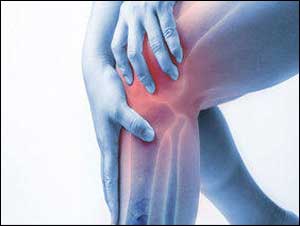- Home
- Editorial
- News
- Practice Guidelines
- Anesthesiology Guidelines
- Cancer Guidelines
- Cardiac Sciences Guidelines
- Critical Care Guidelines
- Dentistry Guidelines
- Dermatology Guidelines
- Diabetes and Endo Guidelines
- Diagnostics Guidelines
- ENT Guidelines
- Featured Practice Guidelines
- Gastroenterology Guidelines
- Geriatrics Guidelines
- Medicine Guidelines
- Nephrology Guidelines
- Neurosciences Guidelines
- Obs and Gynae Guidelines
- Ophthalmology Guidelines
- Orthopaedics Guidelines
- Paediatrics Guidelines
- Psychiatry Guidelines
- Pulmonology Guidelines
- Radiology Guidelines
- Surgery Guidelines
- Urology Guidelines
Thiazides use increases risk of knee replacement surgery in osteoarthritis patients

Delhi: The use of thiazide diuretics is riskier than loop diuretics in patients with knee osteoarthritis as it increases the risk of knee replacement (KR) surgery, finds a recent study published in the journal Osteoarthritis and Cartilage. Thiazide diuretics use is associated with higher bone mineral density (BMD) and lower serum magnesium levels, and both the factors (low serum magnesium and high BMD) are linked with high prevalent knee osteoarthritis.
J. Wei, Health Management Center, Xiangya Hospital, Central South University, Changsha, Hunan, China, and colleagues aimed to compare the risk of knee replacement surgery, among initiators of thiazide and loop diuretics.
This population-based cohort study included 50 patients in the UK (aged 50 and elder) diagnosed with knee osteoarthritis in The Health Improvement Network, a general practitioner electronic medical record database. The risk of knee replacement surgery was compared over 5 years among patients initiating loop or thiazide diuretics.
This population-based cohort study included patients in the United Kingdom, ages 50 and older, who were diagnosed with knee osteoarthritis in The Health Improvement Network, a general practitioner electronic medical record database. Researchers compared the risk of knee replacement surgery, over 5 years, among patients initiating loop or thiazide diuretics.
Also Read: Patients with radiographic knee osteoarthritis at increased death risk
Key findings of the study include:
- Both groups comprised of 3488 patients, 59% were women with a mean age of 73 years. Among thiazide diuretic initiators, 359 (28.6/1000 person-years [PY]) knee replacements occurred during the follow-up period compared with 283 (24.1/1000 PY) among loop diuretic initiators.
- The risk difference of incident knee replacement in thiazide initiators compared with loop initiators was 4.5. The adherence-adjusted HR of knee replacement for continuous thiazide diuretic use was 1.44.
- The associations were not materially changed by sensitivity analyses that excluded potential confounders like chronic kidney disease and extreme propensity scores, or restricted analysis to patients with incident knee osteoarthritis.
Also Read: Zoledronic Acid not effective in Knee Osteoarthritis : Study
The researchers conclude that if these findings can be replicated in future studies and found to be causal, then it could suggest that thiazide diuretics may unfavourably impact knee osteoarthritis progression.
Researchers also concluded that “this study may shed light on our understanding of the biological mechanisms linking thiazide use to the risk of knee [osteoarthritis] progression. If future studies could collect data on thiazide use, bone mineral density, serum levels of magnesium, as well as changes in knee structures and symptoms, we could assess to what [extent] the effect of thiazide use on the risk of knee [osteoarthritis] progression is mediated via effects on [bone mineral density] or magnesium levels; such insight could help guide the development of targeted treatment strategies for knee [osteoarthritis] prevention and progression.”
To read the complete study log on to https://doi.org/10.1016/j.joca.2019.05.020

Disclaimer: This site is primarily intended for healthcare professionals. Any content/information on this website does not replace the advice of medical and/or health professionals and should not be construed as medical/diagnostic advice/endorsement or prescription. Use of this site is subject to our terms of use, privacy policy, advertisement policy. © 2020 Minerva Medical Treatment Pvt Ltd